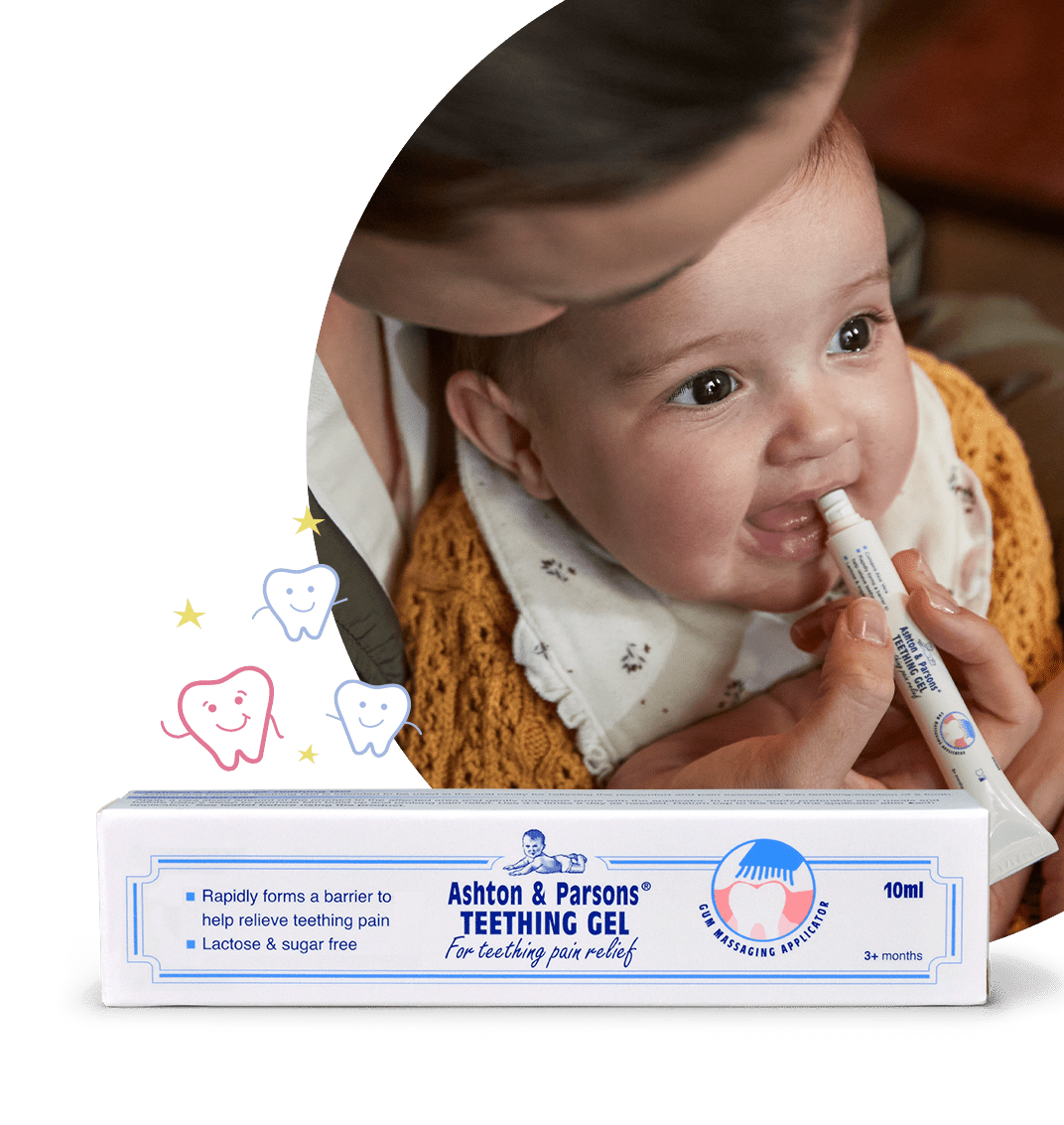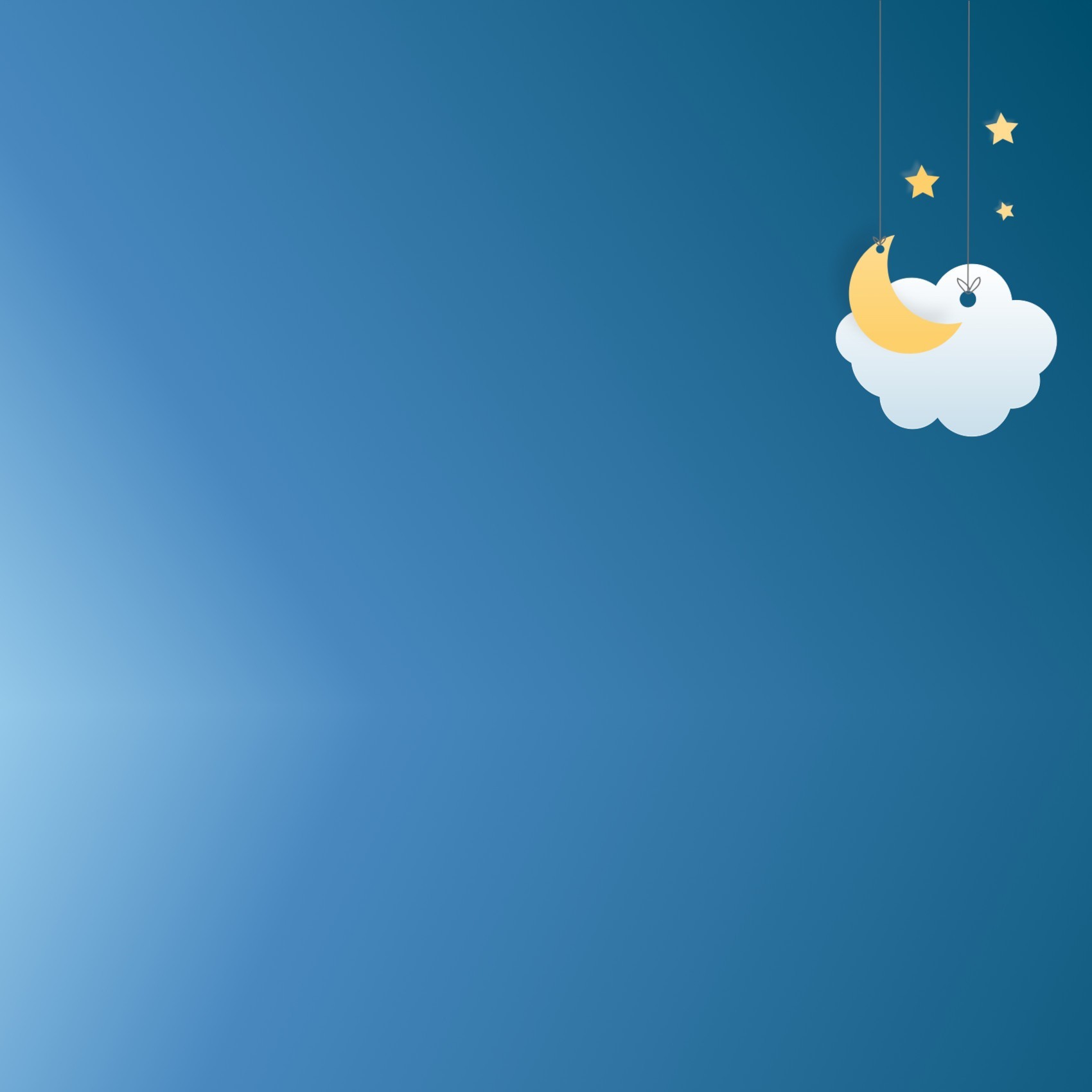Teething is always a difficult time for infants and parents; growing milk teeth is an unavoidably painful process, and it’s tough having to witness your little one in distress. During the day it can be easier to relieve your baby from the discomfort of teething by using distractions such as play, outings and other stimuli. But trying to maintain a normal bedtime routine (as far as is possible) during teething is important. So, should teething pain cause them to wake, getting your little one (and yourself!) back to sleep as soon as possible is a priority. Even with the need to avoid distractive play, there are still plenty of ways you can calm and comfort a teething baby during the night.
Is it teething?
It’s important to be confident the symptoms do indeed point towards teething as the source of their frustration, so look out for typical symptoms which include:
- your baby’s gum is sore and red where the tooth is coming through
- one cheek is flushed
- they are rubbing their ear
- your baby is dribbling more than usual
- they are gnawing and chewing on things a lot
- they are more fretful than usual
The NHS recommends that you carefully consider any differential diagnoses (possible alternatives to teething) as this may mean a different reaction is required. Ear pulling and rubbing is also a symptom of ear infections for example, which means you need to seek advice from a medical professional. The above information is not to diagnose or prescribe, please speak to your healthcare professional for all medically related matters.
Night-time teething tips
A little pressure can relieve the pain temporarily, so try rubbing the gums gently with a clean fingertip.
Chilled items to suck or chew on can also help with pain relief. Try a teething ring or teething mitt that has been cooled in the fridge (not the freezer), or let them bite on a cold, wet flannel. If your baby is used to a dummy or pacifier, you can chill this in the fridge for use as a teething aid;
dummies aren’t recommended for babies over 12 months. Depending on your baby’s age, you could also try cold water or lukewarm chamomile tea in a bottle, or some chilled fruit and veg if your baby is eating solid foods (cucumber, carrot and banana work well). If you are giving your baby something to put in their mouth, it’s important to be vigilant of anything becoming a choking hazard.
Alternatively, you may wish to try medications such as infant paracetamol or ibuprofen. Ensure these are sugar-free and used as per the dosage instructions (usually only for babies and infants older than 3 months, please note it is worth seeking advice from your GP if using medicated pain relief). There are also several teething powders available. For over 150 years, parents have used Ashton & Parsons Teething Powders, a traditional herbal remedy used to help soothe the symptoms associated with teething. The Powders can be administered directly from sachet onto your baby’s tongue a little at a time, allowing the powder to fully dissolve.
There are also many teething gels available including our award-winning Ashton & Parsons Teething Gel, a medical device which helps relieve teething pain by gently massaging the gel onto sore gums with a soft brush applicator.
The greatest comfort for a distressed baby is always going to be cuddles and attention, so feel free to shower your little one with as much love and hugs as you can muster during your sleep deprivation! Those, along with some of the other suggestions above will hopefully ensure that any distress is quickly minimised, and sleep patterns can return to normal.
Ashton & Parsons Teething Powders are a traditional herbal medicinal product used for the symptomatic relief of teething pain and the symptoms associated with teething which are sore and tender gums, flushed cheeks and dribbling, exclusively based upon long-standing use as a traditional herbal remedy. Contains tincture of matricaria. Always read the label.
Ashton & Parsons Teething Gel is a medical device. Always remember, product should be applied by adults. Never leave a medical device in the hands of a child.
References:
https://www.nhs.uk/conditions/pregnancy-and-baby/teething-and-tooth-care/






